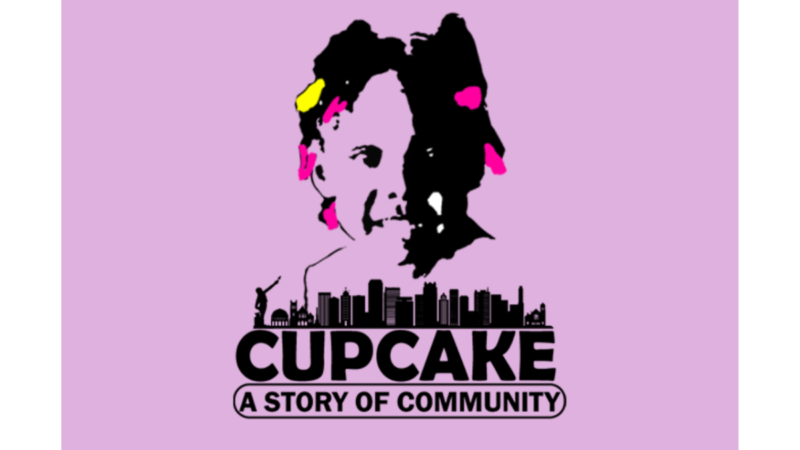WBRC’s new podcast explores the disappearance of Kamille ‘Cupcake’ McKinney
Last week, a judge sentenced two people to life in prison without parole in a federal kidnapping case that resulted in the death of Kamille ‘Cupcake’ McKinney.
The 3-year-old went missing in 2019 outside a public housing complex in Birmingham. Her body was found about a week later in a dumpster.
A new podcast from WBRC-TV called “Cupcake: A Story of Community” digs into the case, which gripped the Birmingham community.
WBHM’s Miranda Fulmore spoke with the podcast’s host, Challis Morgan.
This interview was edited for length and clarity.
In this podcast, you walk listeners through the 10-day period between Cupcake’s disappearance and when her body was found. One of your key interviews is with April Thomas, Cupcake’s mom. Tell me a little bit more about her experience.
When I interviewed her, it wasn’t just the pain of losing her daughter that she sort of portrayed, it was the pain of the social pressure that also made an impact on her. And so to try to get that — it was a dense project to try to work on.
Talk about that social pressure. In the podcast, you mentioned that people would take to social media and question April’s mothering decisions and how she handled the kidnapping. Tell me a little bit more about how social media played a role in April’s experience.
Social media is a very interesting beast. It is a place where it’s like little leftovers, little nagging thoughts go to live, and they stay there and they grow because everyone else’s nagging thoughts and like suspicions sort of just gather. And it became this alternate universe of criticism, suspicion and judgment a little bit. During that time, I remember sort of hearing people say, as an afterthought, like: “Hmm, I wonder why that child was out so late.” Like, people would just kind of say it, but it wasn’t the theme of the conversation. And on social media, it gets really warped really quickly and really easily. And that was something that April had to sort of reckon with. Even still, her social media presence plays a little bit of a role in her experience, and that idea of social media and what happens when you take something that’s very serious, that is involving someone’s life, well-being, heart, past, and you take it and you turn it into a debacle on social media. It really does have impacts. It’s a really big deal.
What’s something you didn’t get to dig into in this podcast episode that you wish you could have explored more?
The suspects. I don’t talk about them in this episode. So you have these two people who come from different backgrounds and have different pasts, but they’re in the same place carrying this darkness forward. How did that happen? Why did that happen? I really wish that I could have taken some time to get into some of that stuff. Because, I mean, it’s real. You can just paint them as just like two demons. But, I mean, what is the story? Why? What the heck was that?
What do you hope listeners take away from listening to this podcast?
A little bit more awareness, just a little bit more awareness of the fact that there is always so much more to the story. Anytime something happens, our emotions are what guide us … like little arrows. … That’s what encourages our actions. And when things happen we have emotional responses initially. But it’s really important to stop and take a second and try to get a better understanding of what it is that you’re looking at so that you can translate your emotions into actions, productive actions.
40 years after ‘Purple Rain,’ Prince’s band remembers how the movie came together
Before social media, the film Purple Rain gave audiences a peak into Prince’s musical life. Band members say the true genesis of the title song was much less combative than the version presented in the film.
Park Fire in California could continue growing exponentially, Cal Fire officer says
Cal Fire has confirmed that over a hundred structures have been damaged in the Park Fire, which grew overnight near Chico, Calif. Difficult firefighting conditions are forecast through Friday night.
Checking in with Black voters in Georgia about the election, now that Biden is out
Some voters who could be key to deciding who wins Georgia. What do they think about Vice President Harris becoming the frontrunner in the race to be the Democratic nominee?
Tahiti’s waves are a matter of ‘life and death’ for surfing Olympics
Tahiti's Teahupo'o wave has a slew of riders for the Paris 2024 Olympics. NPR finds out why it's called one of the most dangerous waves.
Researchers are revising botanical names to address troubling connotations
Since the mid-1700s, researchers have classified life with scientific names. But some of them have problematic histories and connotations. The botanical community is trying to tackle this issue.
A spectacular opening ceremony wowed a global audience despite Paris’ on-and-off rain
The Paris Olympics opening ceremony wowed Parisians, fans and most everyone who was able to catch a glimpse of thousands of athletes floating down the Seine to officially begin the Games.



